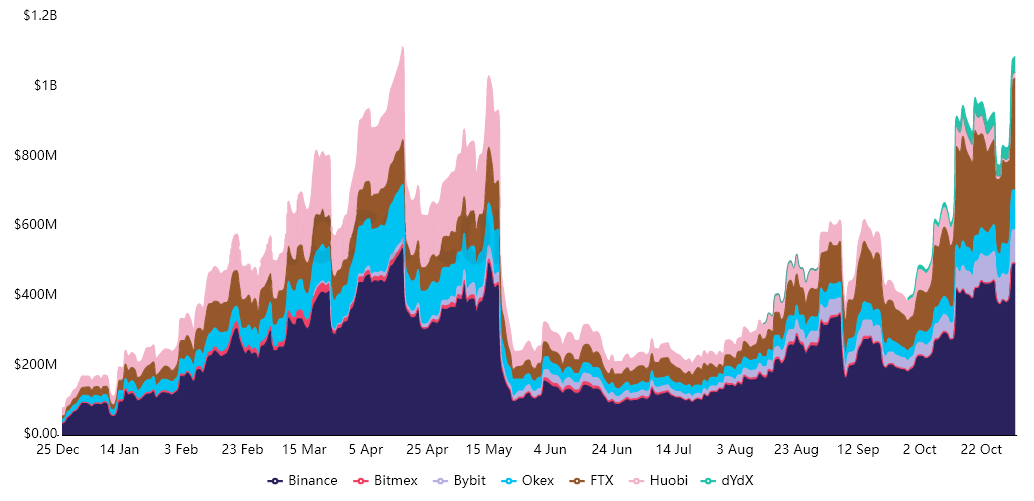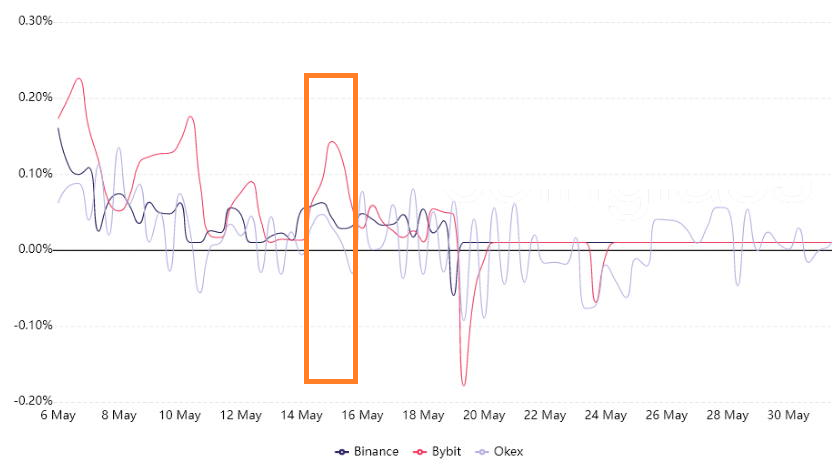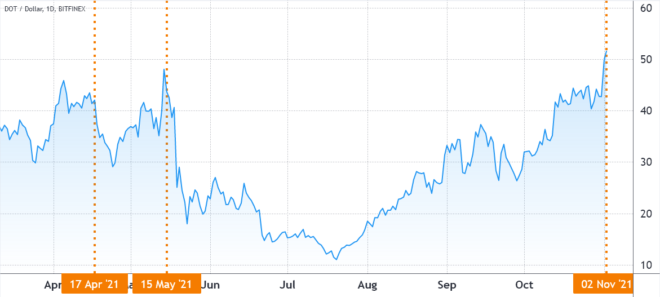Whenever there is relevant growth in the number of derivatives contracts currently in play (open interest), it usually means that more traders are involved.
In futures markets, longs and shorts are balanced at all times, but having a larger number of active contracts allows the participation of institutional investors that require a minimum market size.
However, in Polkadot’s (DOT) case, price crashes have often been anticipated by this indicator breaking the $1 billion mark.
The April 17 crash happened after DOT reached its $48.30 all-time high, which led to a $1.2 billion futures open interest. Over the following week, the altcoin dropped 45% to $26.60, driving the number of active contracts to a $600 million equivalent.
Three weeks later, on May 15, a similar movement happened as Polkadot renewed its all-time high to $49.80. This time around, a 68% crash followed over the next five days. Consequently, the futures open interest reached a 4-month low at $220 million.

Take notice of how Polkadot’s 28% rally in the first two days of November led to a $53.30 record high and also brought the derivatives indicator above the $1 billion mark.
The 18.9 million DOT development fund announced on Oct. 17 accentuated the rally already in place ahead of the parachain auctions expected for mid-November. According to Polkadot’s founder Gavin Wood, the $960 million grant will be used to build, improve and educate the network’s growing ecosystem.
Projects are currently raising capital to bootstrap their parachain auctions and Polkadot investors who wish to support any of those must lock their DOT into a sponsored account. In return, investors are rewarded air-dropped tokens from the project competing for the parachain slot.
What about the $54 billion question?
Does the current $1 billion “death mark” on Polkadot futures open interest signal a potential crash or will it be different this time?
As previously explained, the open interest metric can not be deemed bullish or bearish on a standalone basis. So, to understand if derivatives traders are using excessive leverage, one should analyze the perpetual futures contract data.
This instrument is the retail traders’ preferred derivative because its price tends to track the regular spot markets.
To balance out their risk, exchanges will charge a funding rate to whichever side demands more leverage and this fee is paid to the opposing side.

Neutral markets tend to display a 0% to 0.03% positive funding rate, equivalent to 0.6% per week, indicating that longs are the ones paying it. The average rate ahead of the May 15 crash was a bit higher at 0.075%, which is roughly 1.6% per week. At this time, longs were not desperate to close their positions and there were no signs of excessive leverage.
Related: Is Polkadot eyeing $100 next? DOT price jumps 25%, triggering classic bullish chart pattern
The only possible conclusion is that a generalized market crash caused investors and algo traders to desperately sell their altcoins, and thus derivatives markets were not the leading cause for the crash.
Another comforting piece of data for Polkadot holders is DOT’s current 8-hour funding rate at 0.05%. This is slightly optimistic and nowhere near levels that are considered concerning. At the moment, there are no signs of potential crash due to the $1 billion futures open interest.
The views and opinions expressed here are solely those of the author and do not necessarily reflect the views of Cointelegraph. Every investment and trading move involves risk. You should conduct your own research when making a decision.




